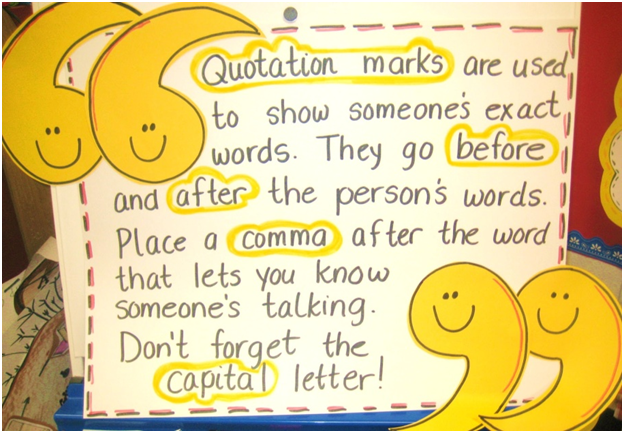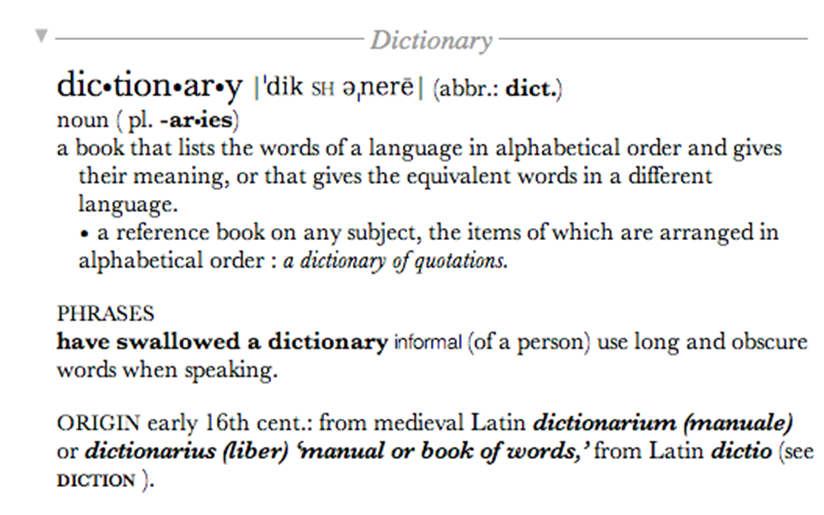How to use Punctuation Correctly? Part - II
In our first part we learned about the use of five punctuations, namely period, question mark, exclamation mark, Ellipsis, Semicolon (;) and colon (:). Let us now begin our free English learning session with other punctuations.
Hyphen vs. Dash
Don't we all get confused when it comes to the use of the hyphen and dash? A hyphen is used when you add a prefix to a word. The hyphen makes it easier to read the word. For instance, reexamine needs to be written as re-examine. As you can notice, the hyphen makes the word easy to read. It is important to refer a dictionary whenever you have doubts whether a hyphen needs to be added or not.
There are words like to restate, undo, etc. that do not require a hyphen. A hyphen means the words rely on each other. The hyphen is also used when you make compound words, like, up-to-date.
The dash is used to introduce some information to the subject not necessarily directly related to the topic under discussion. For instance, Ram - a mechanical engineer from D.E institute – presented an innovative idea in his latest presentation at the annual meeting. Now, this is clearly additional information without which the sentence would be complete, but the information definitely provides more idea on his educational background. When you are using a dash, there is a way you can ascertain whether the usage is right. Just read the line, omitting the dash part, if the sentence is still making sense then it is correct, but if it is disjointed then you may need to reframe the sentence.
Quotation marks (" ")
Whenever you are stating a direct quotation, as said by a person or taken from a piece of literature, you should use the double quotation mark.
For instance: According to a research, "60% of Indian population gets confused between the usage of double quotation and single quotation marks."
Single quotation
Also called as the apostrophe mark ('), it is used within a word to indicate possession and short form.
Ex: It's my pen over there.
There is a great lot of confusion between using an apostrophe and singular/plural noun.
It is my daughter's pen and it is her pen. We cannot say that it is her's pen.
There are a number of English learning exercises online where you can practice the use of apostrophe to improve your English language skills.
English grammar is an interesting topic to learn, but requires a lot of patience and practice. Nobody can learn it overnight. So, go step-by-step. Correct usage of punctuation is a fundamental to learning the English language. We shall continue with our free English learning lessons, in our next blog. We shall also take a lesson on the usage of commas (,). Stay tuned to our online class for English speaking.
Gear up! It’s Test Time
Hello people, it is our second test of the test series! 
We hope, you have been practicing English diligently. With the simple and tried-and-tested tips we provide, aren't you guys finding learning English a lot better?
How well did you guys score in our last test (http://english.eagetutor.com/english/1-spoken-english/569-english-exercises-for-beginners.html)? To brush up your skills and to give you an idea of where you stand as far as reading and spoken English is concerned, and how much more you need to work. However, one keeps learning English constantly, because that is the beauty of this language. There are new things to learn everyday!
Without much ado, let us start the test.
1. Isn't there anything better than this on TV?
I'm sorry, ______
A: there is anything better than this
B: they isn't
C: this is the better show.
D: there's nothing better.
2. Can you speak a foreign language?
A. Yes, I can speaks Chinese.
B. Yes, I can. I speak Chinese very well.
C. I can speak the Chinese.
3. Are Audi cars expensive?
A. Yes, are the most expensive cars in the world.
B. Yes, they are very more expensive.
C. Yes, they are very expensive
4. Will you get me some salt please?
A. No, thank you.
B. Sure, no problem. How much salt do you want?
C. Yes, I will. Here you are.
5. What happened to the cake?
A. The cake was eating by Suresh.
B. Was eaten by Suresh.
C. It was eaten by Suresh.
D. Suresh eating the cake.
6. Put these words in the correct order:
A. She
B. Was about to
C. Gave her a raise
D. Quit her job
E. When they
7. Identify the adjective in the following sentence:
Ships can reach Alaska in a relatively short time because of the extreme cold conditions.
8. Which of the following sentence is correct?
A. In the kitchen of Suresh, there is a stove, a sink and a refrigerator.
B. Is boiling water in a pot on the stove.
C. The clean dishes are on the shelves, inside the cupboard.
D. Behind the refrigerator, there is many dust.
9. Which of the following is not a polite sentence?
A. May I have some ketchup please?
B. I'd like a beer.
C. Can I get some salad?
D. Could I have a cup of coffee?
E. I want a hamburger.
10. Have you ______ been to Africa?
A. Ever
B. Still
C. Always
D. Much
E. Yet
So, get your pen and paper out and crack this simple test. All the best!

Learning English grammar and spoken English can become easy and convenient, provided you join the right English speaking class. With online classes for English speaking like eAgeTutor, learning English grammar can become quick and easy. Fluency in spoken English is a must, as it reflects your mastery of the language and exudes confidence, and with a proficient online English class like eAgeTutor, you can polish your English speaking skills and also learn new terms and phrases.
A Guide on How to Use a Dictionary Effectively
As a student who is learning English language, it is important that you understand how to use a dictionary. The English language has approximately 1 million words, of which an average speaker would be aware of about 60,000 words. You may be familiar with many words but would not know the exact meaning of them all. A dictionary is a handy tool that helps you improve your vocabulary day in and day out. Not only does it helps you deduce a word's meaning and spelling, but also helps you to effectively improve your English language.
Let us first look at the various information that you can find about a word in a dictionary.
• Spelling of the words and its plural form
• Syllables of a word
• Whether the word is capitalized or has an abbreviation
• The pronunciation of a word
• Different meanings a word has, its synonyms (same meaning) and antonyms (opposite meaning)
• History of the word
• An example of a sentence/expression showing the right usage of the word
• Prefixes and suffixes and their meanings
• Different words that can be derived from the main word
How to use a dictionary effectively?
You can improve your English fast, if you practice the habit of referring to a dictionary. Most of us refrain to carry a pocket dictionary as we consider it a time-consuming thing. However, if you know how to use a dictionary properly, it will take you less than a minute to find a word's meaning and refer the example. Let's look at the pointers that can help save your time.
Get yourself a quality dictionary – If you don't have a dictionary, make sure you buy a quality one like the Oxford dictionary.
Get familiar with its use – The user guidelines for each dictionary vary in approach. Therefore, the best way to go about it is to read the intro section and jot down how the details are arranged. Once you know the proper alphabetical order, you are well on your way to use the dictionary real fast.
For instance, if you're searching for a word "gnome", goes to the 'G' section and check the guide words, which are located in the upper corner of every page. These guide words are an indication on how close you are to finding your word. These guide words are real speed busters and must be checked to locate your word faster. Then, look for the second word 'n' to narrow down your search.
Got the word: Now, that you have found your word, what should you pay attention to?
• Definition of the word
• Different pronunciations – pay attention to the stress mark - ' - usually placed before a syllable to help you pronounce the word correctly.
• Capitalization
• Synonyms and antonyms
• Use of preposition, 'in', 'on' etc.,
• Phrases/idioms linked to the word
• Spellings in American, British and Australian English.
Improve your English speaking fluency by reading the word aloud from the dictionary, following the pronunciation guideline.
Hope this guide helps you to make proper use of your dictionary. Upgrade your English speaking skills while you have fun using a dictionary.
How to Carry a Conversation at a Party?
Office parties are a great way to unwind, break the ice, and get to know your colleagues and to let your hair down as well. Office parties offer one more opportunity – to practice your English and social skills.
Office parties are the perfect place to strike a conversation with the colleagues you have always wished to speak with. The environment and mood is just perfect – neither too formal, nor too casual. This is the perfect setting to strike a casual conversation and indulge in some small talk.
However, for people who are complete novices, even a casual conversation at the party is enough to break them into a sweat. The fear of fumbling, making a mistake, mispronouncing, and many other such monsters come to haunt the mind when you are not confident about speaking in English. However, you should remind yourself of one thing always, if you do not practice spoken English, how will you ever improve and gain the confidence? Do not be afraid of making mistakes, rather take them sportingly and learn from them.
To help you out, we will give you a quick lesson to give you an idea of what a standard conversation at a party goes like. We, definitely, cannot predict what the mind of a conversation may crop up at a party, but we can definitely draw a rough sketch to prepare you beforehand so that you do not get caught unawares!
Here is an idea of a usual conversation at a party:
(Before we start, let us make some fictional characters amongst which the conversation will take place. Raj (our amateur English speaker), Suresh, and Priya should be good!)
Raj joins Suresh and Priya
Raj: Hey Suresh, how are you?
Suresh: Hello Raj, meet my friend Priya. Priya, this is Raj, he works in my department.
Priya: Hi, Raj.
Raj: Hi, Priya. So, which department are you in?
Priya: I am in accounts.
Suresh: Hey, let us get some finger food to eat, while we chat up.
Priya: Why, that is a good idea!
Raj: yes, let us go.
As you must have deduced by now, since this is a party, casual words like 'hey', 'chat up', etc. are acceptable. These words give your sentences a fun feel and are apt, given the situation. Now our scene is proceeding towards food. Remember, food is always a safe topic of conversation. Unlike other topics, where people can get judgmental or hurt, food is, by far, a safe topic and it is pertinent that you exploit this opportunity to its maximum.
At the buffet table:
Suresh: Priya, try these paneer fritters. They are amazing.
Priya: Sure.
Raj: I would like to has some, as well.
Suresh: Not has, Raj. You should say 'have'.
Raj: What?
Suresh: You should say, 'I would like to have some, as well.'
Raj: Oh. Thank you for correcting me.
Suresh (to Priya): Raj has been trying to improve his English speaking skills and he practices often. I must say, he has improved a lot.
Priya: Oh! That is terrific, Raj. All the best.
So, this is how you should always welcome help and correction. This is the only way you can improve spoken English. Joining an online English speaking class like eAgeTutor is also a good idea as it will help you understand the rules and nuances of English, thereby improving your spoken English.




